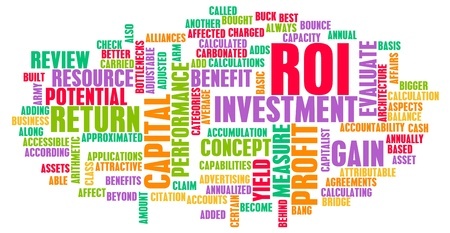HOW TO CALCULATE RENTAL YIELD
Rental Yield: What is it, and how do you work it out?
“Yield is the percentage of rental income compared to the purchase price.”
Here’s another explanation:
“Yield is a measure of how much cash an asset produces each year as a percentage of that asset’s value.”
GROSS YIELD
Hmmm. That still sounds confusing. Let’s try an example to explain things:
Let’s say that you have a rental property, and it is worth $520,000. The weekly rent is $520. Take the weekly rent and multiply it by 52 weeks:
$520 x 52 weeks = $27,040
Now, take that figure and divide it by the value of the property:
$27,040 ÷ $500,000 = 0.05408
Finally, multiply that fraction by 100 to get the percentage:
0.05408 x 100 = 5.4%
You now have the Gross Yield for the property. It yields or makes 5.4% per year.
Note, however, that that is the Gross Yield. That means that it is the yield, but doesn’t include any expenses.

NET YIELD
So, we just showed you how to work out the Gross Yield. How do you work out the Net Yield, that is, the Yield post- or including expenses?
If you do want to want a more precise calculation you will need to know (or estimate) the total expenses of the property including:
- purchasing and transaction costs, e.g. property purchase price, legal costs, building inspections, Council reports, bank/loan fees, LTC setup fees (if applicable), etc, and
- annual costs, e.g. vacancy costs (lost rent and advertising), repairs and maintenance, property management fees, house insurance, body corp. levies (if applicable), rates, accounting, water etc.
NET YIELD (CONT.)
Here’s the formula to work out Net Yield:
Net rental yield = (annual rental income – annual expenses) ÷ (total property costs) x 100
Let’s take that $520,000 house again which is renting out for $520 per week:
Our annual rental income is $27,040, and let’s say the annual expenses include $15,000 of interest, $1,600 of insurance, $2,300 of property management fees, and $4,500 to cover rates, accounting, repairs and incidentals. So now we get:
Net rental yield = ($26,000 – $23,400) ÷ (total property costs) x 100
To work out “total property costs”, let’s deduct the following costs from our purchase price of $520,000: $2,000 for conveyancing, $500 for a valuation and another $1,500 to cover LTC setup, reports and incidentals. Let’s also assume the bank contributed $500 towards legal fees. So now we get:
Net rental yield = ($26,000 – $23,400) ÷ ($520,000 – $3,500) x 100
Where does that get us to?
Net rental yield = ($2,600) ÷ ($516,500) x 100
…which equals 0.5%
Now that property which was looking on the low side of OK for Gross Yield, is looking rather lame after we calculate Net Yield.
THAT AIN’T GREAT
If you are looking at numbers like this when you do your calculations, then we suggest you are better to push the numbers further south, i.e., look at a negatively-geared property. (See here for a short video on negative vs positive gearing)
OUR CONCLUSION
There are lots of factors to consider when investing in property depending on your personal situation, what your goals are and when you want to get there.
We suggest you read this article which compares new with old with land/build projects. Also, have a look at our blog. It has lots of useful videos and articles (all free!)
SO… NOW WHAT?
Give us a call. We’re happy to chat and we are here to help: 0800 890 132 or contact us
Pages
Useful Links
Services
Contact Details
Phone: 0800-890-132
Email: support@epsomtax.com
Fax: +64 28-255-08279
EpsomTax.com © 2021
